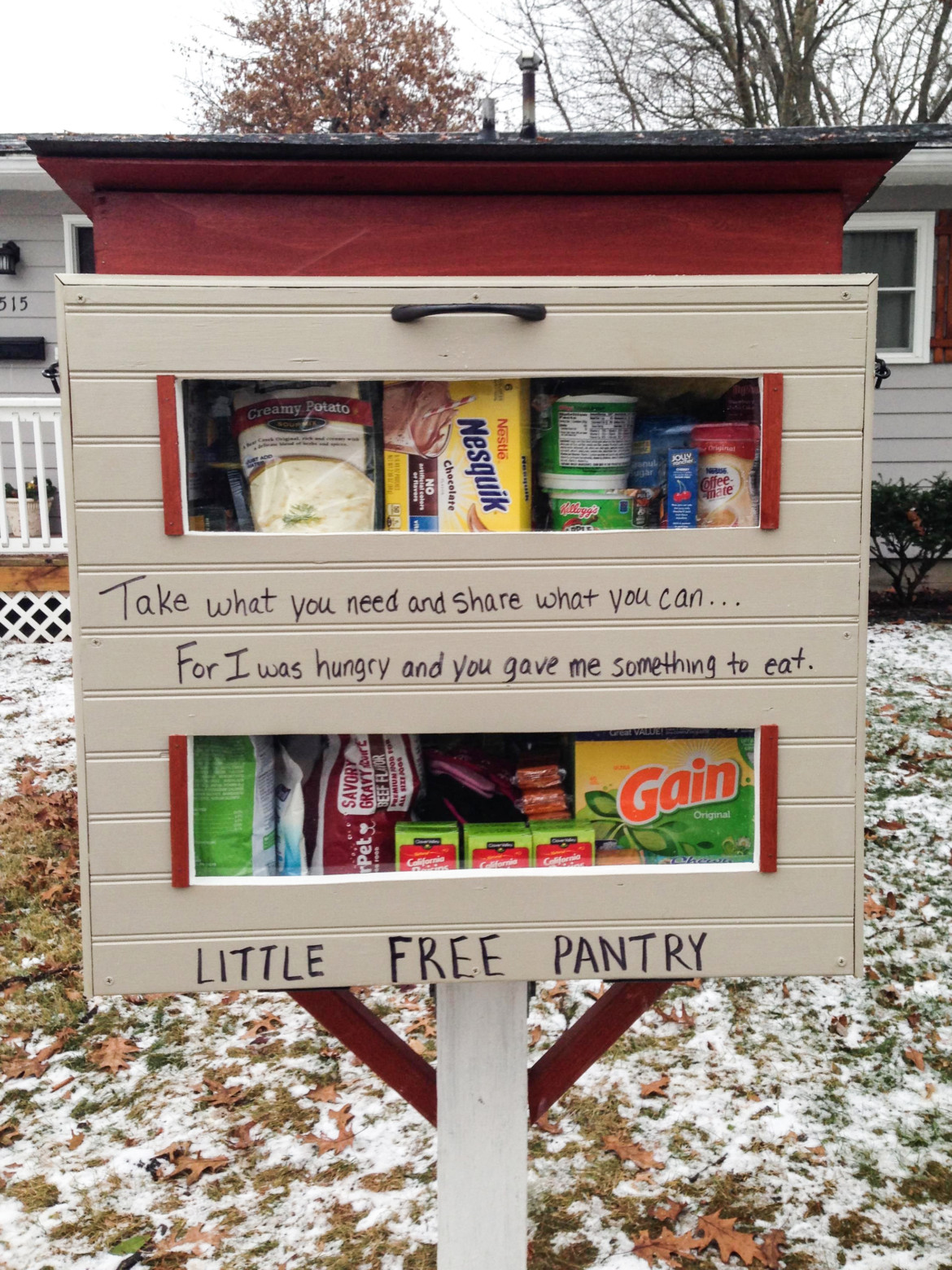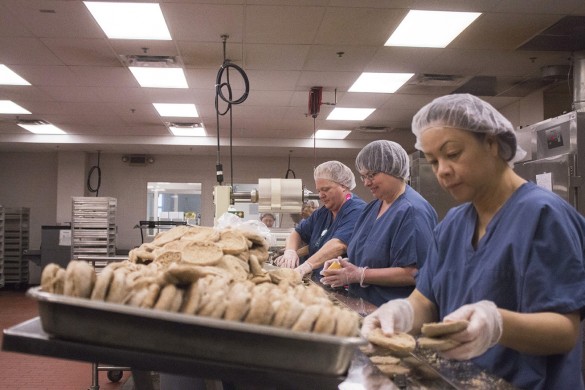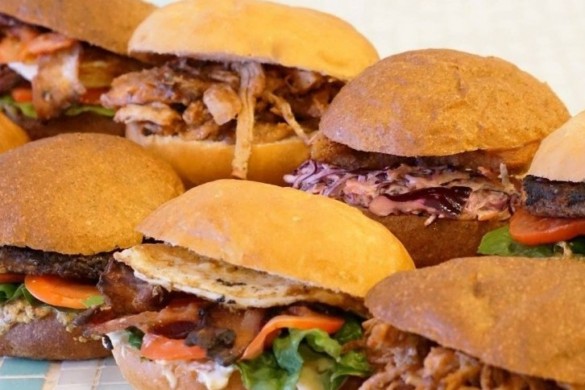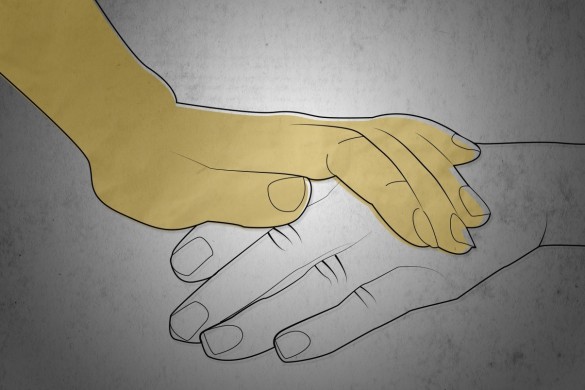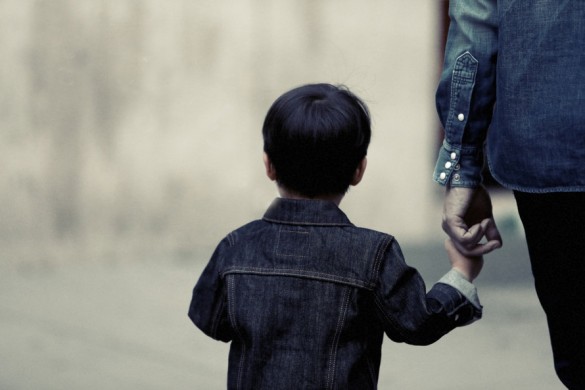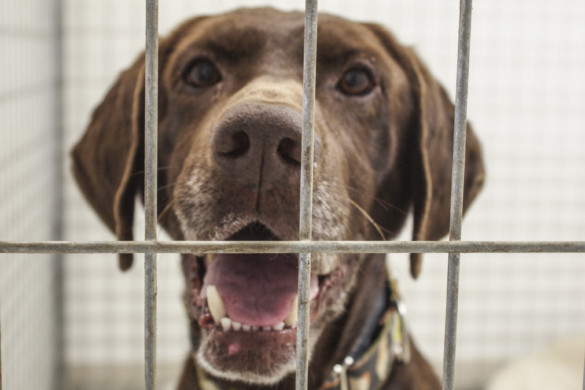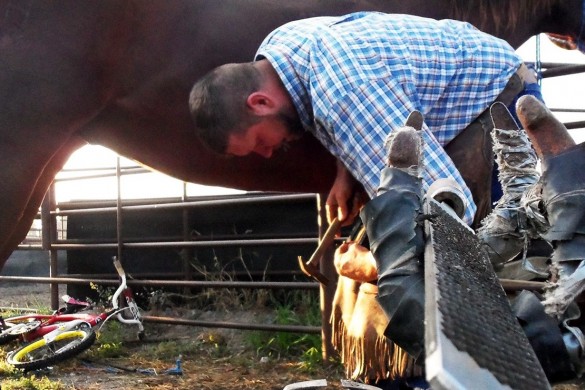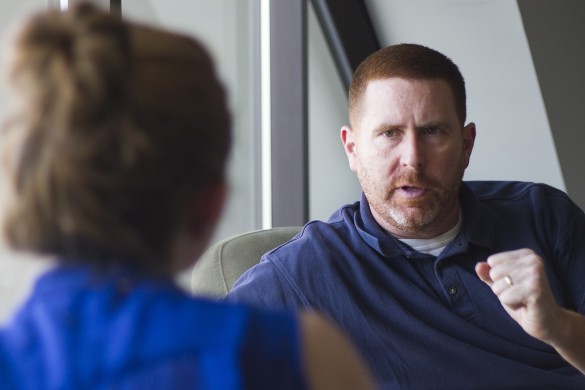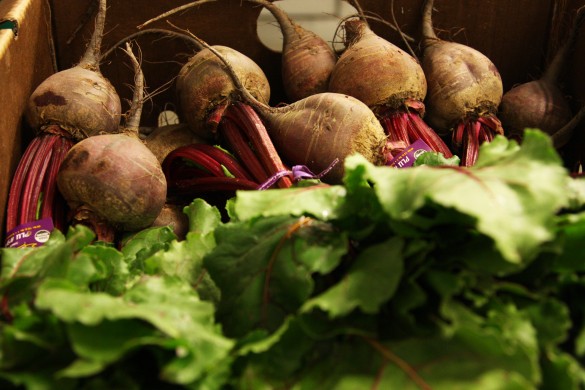This box on a post is hoping to tackle food insecurities in local neighborhoods across the country
Words and Graphic by Zoe Ekonomou
Photo by Jessica Schirm
The concept is simple: Take what you need, leave what you can.
Little Free Pantries founder Jessica McClard was first inspired after she saw a Little Free Library pop up in her neighborhood. Little Free Library is a nonprofit organization that fosters neighborhood book exchanges across the world. They are most commonly found as small wooden boxes on a post filled with books that anyone can leave or take to read.
As McClard’s stops to the community library became more frequent, she began to wonder how this “box on a post” concept could be implemented in different ways.
“Once I asked that question, what I was going to do was immediately apparent,” McClard said.
On May 12, McClard’s box was mounted in front of her church in Fayetteville, Arkansas. She stocked it with general pantry items in hopes that it would help people in her local neighborhood who were struggling with food insecurity. She created a Facebook page and shared it. From there, the concept has blown up across Arkansas and is spreading. After 10 months, McClard’s Facebook page has over 20,000 likes and has sparked more than 90 similar free pantry pages.
The concept has spread to the Midwest, where it has reached different parts of Iowa, including Iowa City, Cedar Valley, and Pella.
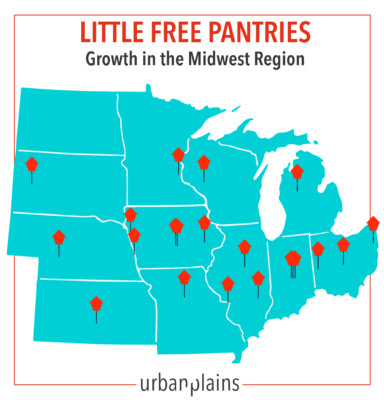
Jessica Schirm established the pantry in Pella this past December soon after the presidential election. “I started to think about if there was something our family could tangibly do to put kindness back into the world,” Schirm said.
Schirm said that while on the surface Pella might not seem like a place that would need help, any town has people in need.
“There’s a gap for people and I think that’s the place where these pantries are really in need,” Schirm said. “Toilet paper doesn’t seem like something that is that expensive if you can buy it in bulk. But if you’ve only got 25 dollars of extra grocery money, you can’t spend 15 dollars on a bulk package of toilet paper. So you are paying more for that than you should. So those are the types of things that my eyes have been opened to.”
Besides toilet paper, items that are cleaned out the most in pantries are household goods, personal care items, cleaning supplies, pet food, shampoo and other things that people can’t typically get at a food shelter or by using food stamps.
When Renee Sedlacek, the director of Community Engaged Learning at Drake University, learned about the project and how little of the boxes there were in Iowa, she knew she wanted to implement this idea into the Drake neighborhood.
“Many parts of the Drake neighborhood are considered food insecure or a ‘food desert,’” Sedlacek said.
The United States Department of Agriculture defines an area as low-food access, or a food desert, if at least 33 percent or 500 people of the census tract’s population in an urban area lives more than 1 mile (or 10 miles for rural areas) away from a large grocery store or a supermarket.
“We live in a very humble community,” Sedlacek said. “No one wants to admit we have these problems with hunger, but it’s real and it exists.”
Sedlacek made Little Free Pantries a focus of the LEAD (Leadership, Education, and Development) senior capstone project. The goal of the capstone is to actively engage students in an action-oriented, service learning project to create a meaningful change with the goal to create a better community for others.
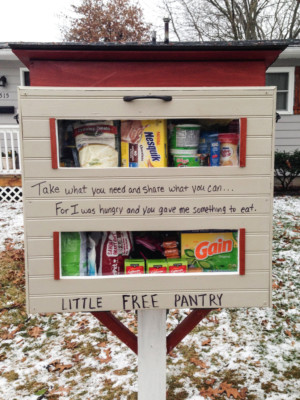
Jessica Schirm’s fully stocked pantry in Pella, IA shortly after it was first put into place in December of 2016.
The students are identifying partners that will help host and basically adopt one of the free pantries. By the end of the semester, the LEAD capstone will have put in eight pantries around the Drake University neighborhood.
Sedlacek hopes to bridge a gap in the deserted areas of the communities. “An idea we have is putting resource information into our pantries,” Sedlacek said. “If you’re hungry or homeless, here’s different agencies. That’s the ultimate goal, because a little free pantry isn’t going to solve that hunger.”
For founder Jessica McClard, the expansion of her little free pantry has been eye-opening.
“I feel like so many people who are in need feel shame, and I think that’s extremely unfortunate because we all need,” McClard said.
“It’s the most profound joy in my life,” McClard said. “And it continues to amaze me when I drive by mine to put things in it, there will already be things there. And this is going on 10 months later. It’s an amazing thing to witness.

